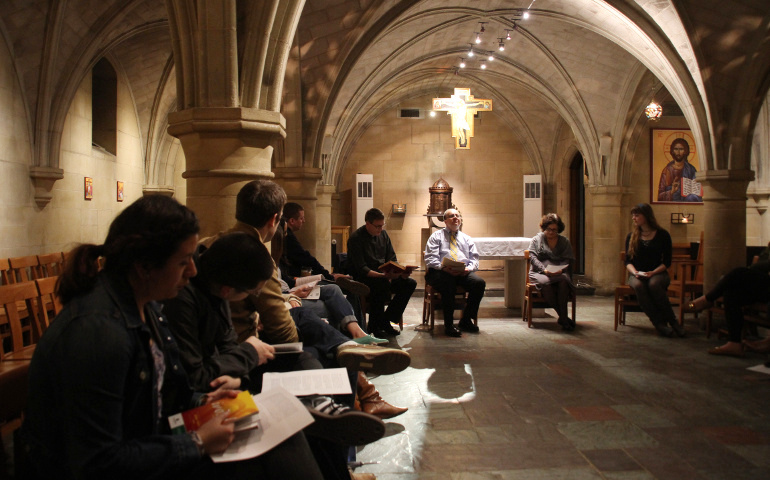
Ennio Mastroianni, center, helps lead a group of catechumens with Father Patrick Rogers and Minerva San Juan in Copley Crypt Chapel of the North American Martyrs at Georgetown University in Washington Feb. 20, 2014. (CNS/Ashleigh Buyers)
Among the curiosities I’ve had in 30 years of teaching courses on nonviolence at Georgetown University to undergraduate and law students is what they think and feel about being at a Catholic and Jesuit school. At the end of the 2016 fall semester, I made a try at finding out.
My undergraduate course, “Peace Is Possible,” met weekly from 3:30 p.m. to 6 p.m. The 51 students, from freshmen to seniors, from multiple faiths to atheists and agnostics, were from countries that included China, Jordan, Ecuador, England, Japan, Colombia and Turkey, from public and private high schools, from families of wealth or poverty, from the political to the apolitical.
A request in my final class was to write answers to five questions. Some agreed to have their names used, some asked for anonymity.
• What has it meant, if anything, to study at a Catholic school like Georgetown? Perhaps what has it meant spiritually, socially, academically?
• Is the Catholicism noticeable on the campus? If so, how?
• Was your being a Catholic or not being a Catholic a factor when applying to Georgetown?
• What are your thoughts on the presence of the several chaplains of other faiths: Jewish, Hindu, Protestant, Buddhist?
• What are the university’s positives and negatives?




